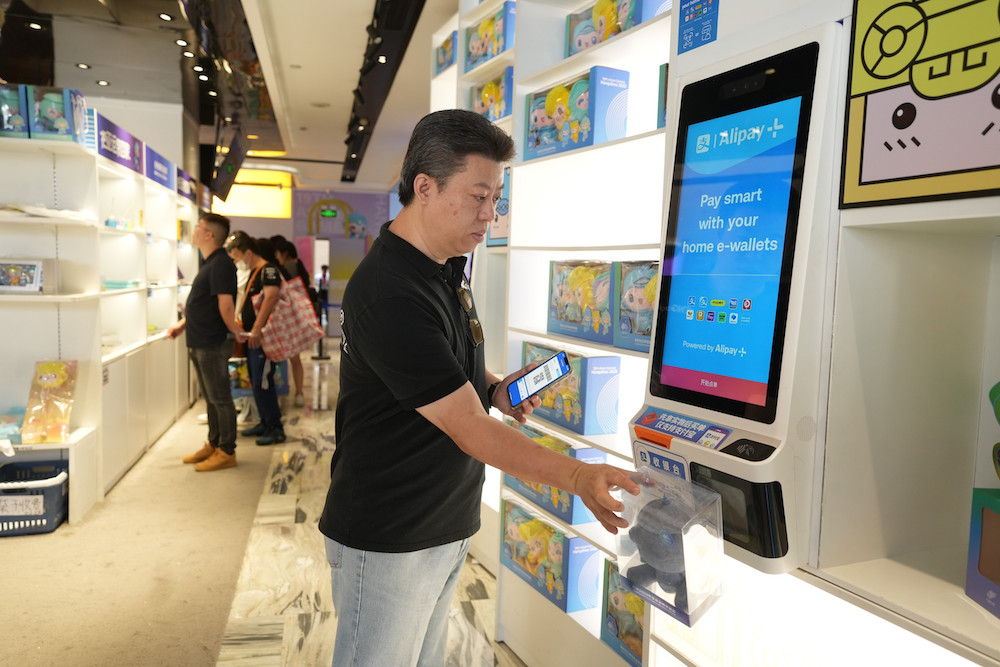Financial services play a crucial role in our society, addressing diverse needs of individuals and businesses, including transactions, payments, savings, credit, insurance, and more. However, access to these services may not always be consistent, depending on the part of the world you reside in.
The adoption of new digital technologies has been key to addressing this inconsistency, enhancing financial inclusion globally, particularly in areas where populations lack access to traditional financial tools. According to the World Bank, as of 2021, approximately 76% of the global population has access to a financial account.
This was especially beneficial during the pandemic, as small businesses could leverage digital financial services to continue accepting online payments, and individuals could seamlessly send money to their loved ones.
The digital economy has thrived since then, with digital financial services becoming more accessible over time. This accessibility has empowered micro, small, and medium enterprises (MSMEs) to expand their business reach beyond local borders, while also providing meaningful participation opportunities for underbanked consumers.
Reiterating its commitment to support the growth goals of its merchants, in particular micro, small, and medium enterprises (MSMEs), Ant International, formerly known as the international business group of Ant Group, unveiled its “4T” internationalization strategy from its headquarters in Singapore.
“Travel, trade, technology, and talent (4T) are the cornerstones of global inclusion and prosperity,” said Yang Peng, president of Ant International. “We will accelerate innovations in digital payment and digital commerce to link up these areas of global collaboration.”
Increased demand for cross-border payments
Global leisure and business travel are showing robust recovery trends. According to Mastercard Economic Institute’s “Travel Industry Trends 2023” report, the reopening of the Chinese mainland and new travel corridors could bolster global growth, particularly in the Asia Pacific. One of the primary digital wallets used by Chinese consumers, Alipay has progressively built up its payment network to enable users to travel and pay worry-free across borders.
As of November 2023, the Alipay+ cross-border mobile payment service connects over 88 million merchants to 1.5 billion consumer accounts on over 25 e-wallets and banking apps in 57 countries and regions, including national QR schemes such as Singapore’s SGQR, Malaysia’s PayNet, South Korea’s ZeroPay, and Sri Lanka’s LankaPay.
As one of the key pillars of Ant International, Alipay+ also covers key Asian and European markets in sectors like food and beverage, tourism and hospitality, as well as retail and transportation. For example, the service can be used for transactions in Universal Studios Japan, South Korea’s duty-free shops, French department store chain Printemps, and the Milan Duomo Cathedral in Italy.
“We are proud of how, through Alipay+, tens of millions of mom-and-pop stalls can reach and transact with international travelers on the same basis as much larger enterprises such as luxury stores,” said Douglas L. Feagin, senior vice president of Ant Group and head of Alipay+.

Global merchants in Ant International’s ecosystem can also tap on Antom, a merchant payment service provider, to engage digitally with consumers in Asia and beyond, collect payments, and grow revenue.
Enabling inclusive global commerce
Three years ago, in November 2020, the ten ASEAN member states signed the Regional Comprehensive Economic Partnership (RCEP), a free trade agreement with Australia, China, Japan, New Zealand, and South Korea. As the RCEP continues to be implemented, it is estimated that as much as 90% of tariffs on goods traded between its member states will be eliminated.
There are an estimated total of 70 million MSMEs in Southeast Asia. Collectively, they account for over 97.2% of the establishments in the region, contributing 85% to employment, and 44.8% to the region’s GDP. With RCEP, businesses can engage in cross-border trade more easily, leveraging digital platforms to reach international customers and penetrate markets that were previously inaccessible.
“Today’s cross-border trade is led by young entrepreneurs who are digital natives with global ambitions,” said Clara Shi, CEO of WorldFirst, a digital payment and financial services platform for cross-border trade small and medium enterprises.
SMEs often lack access to financial tools, experiencing barriers to cross-border trading such as long processing time and high associated costs. Founded in 2004 and acquired by Ant Group in 2019, WorldFirst has served over 1 million SMEs to grow internationally with its World Account, a multi-currency account that can be set up in a matter of minutes. The service connects small traders to over 120 global marketplaces and conducts secure and fast payment transactions in over 40 currencies.
“With World Account, we aim to help them acquire [next-generation] CFO capabilities to sell, manage, and grow across marketplaces and regions,” Shi said.
In Singapore, SME clients of WorldFirst experienced, on average, a 70% increase in their monthly GMV between October 2022 and January 2023. Building on its success in China, Singapore, and other markets, WorldFirst recently announced its plan to launch e-commerce digital finance solutions in other Southeast Asian markets to facilitate global selling, management, and growth for SMEs.
Launched in June 2022, Anext Bank, a digital wholesale bank under Ant International, has, on average, experienced 40% month-on-month growth in cross-border transactions, and expects to see these numbers grow. Today, 68% of its customers are MSMEs, and Toh Su Mei, CEO of Anext Bank, believes that the way to alleviate the various stress and spillover effects from the macro environment is to work closely with industry partners who have a firsthand view of their customers’ pain points.

Speaking during a panel at the Singapore FinTech Festival (SFF) 2023 on November 15, Yang shared that wallet tech, payment tech, and credit tech have been the drivers behind innovation to serve the underbanked population for the past decade. He believes that artificial intelligence, privacy computing, and large language models will drive the new stages of financial inclusion.
Risks and financial crime will evolve together with the progress of technology. “Bad guys will be using AI too. With AIGC, e-KYC will be more challenging,” said Yang. “We need to invest in a sophisticated risk tech framework to safeguard our business.”
Having built a robust global compliance and service structure, Ant International plans to continue investing in foundational technology capabilities to support long-term growth across its business pillars. Ultimately, the company hopes to make the world a closer and friendlier place.
This article was written in partnership with Ant International.

